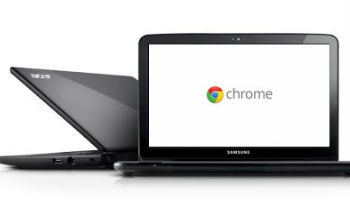The Chromebook kiosks can be easily customised by administrators, according to Google, using a Web-based management console. “The features that you’ll find in the console include the ability to set the default sites and apps a user sees at login, custom brand the homepage, block sites and apps that shouldn’t be accessed, configure device inputs and outputs, and set timed log-out sessions,” wrote Nagarajan. “For security reasons, public session data is cleared on logout so the next user starts fresh.”
 Google has been testing the devices and the public sessions feature with several users, including Dillard’s retail stores, the Multnomah County Library in Oregon and the Hyatt Regency San Francisco, according to the post. Initial results have been promising, wrote Nagarajan.
Google has been testing the devices and the public sessions feature with several users, including Dillard’s retail stores, the Multnomah County Library in Oregon and the Hyatt Regency San Francisco, according to the post. Initial results have been promising, wrote Nagarajan.
“We have many more employees than computers at our retail stores, so being able to share devices is key,” reported Woody Chin, the CIO of Dillard’s. “With Managed Public Sessions, employees can walk up to any machine and get immediate access to their corporate email and important internal systems. And since Managed Public Sessions wipes all data at logout, it supports our PCI compliance requirements.”
Victor Povzner, the senior IT director at the Hyatt Regency San Francisco, reported that he’s been “running Chromeboxes with Managed Public Sessions in employee break areas. We really like Chromeboxes’ speedy browsing, easy management and security. Employees use Chromeboxes to access Hyatt’s payroll system, request time off and stay up to date on internal news. They can also access personal email and social sites during breaks, and I don’t need to worry about viruses and malware infecting Chromeboxes.”
In March, Google began expanding the sales of Chromebooks to six additional nations and in more Best Buy stores in the United States as the search giant and its Chromebook manufacturing partners continue their efforts to popularize the smaller, lighter and inexpensive Internet-centric computers, according to a recent eWEEK report. Acer, Hewlett-Packard and Samsung Chromebooks are now being rolled out in Australia, Canada, France, Germany, Ireland and the Netherlands.
In January, Jim Wong, president of Acer, said the company’s sales of Chromebooks were doing well, while sales of Windows 8 computers were dropping, according to an earlier eWEEK report. Sales of the Chrome-based machines accounted for 5 percent to 10 percent of Acer’s US shipments since being released in November 2012.
The growth of Chrome OS sales and the disappointing Windows 8 sales are causing Acer to look at new strategies, the report said. Across the industry, sales of traditional Windows desktop and laptop computers have been declining for some time as tablets and smartphones are attracting new users and sales, effectively replacing Windows machines in many cases.
Are you a Google expert? Take our quiz!
Originally published on eWeek.




